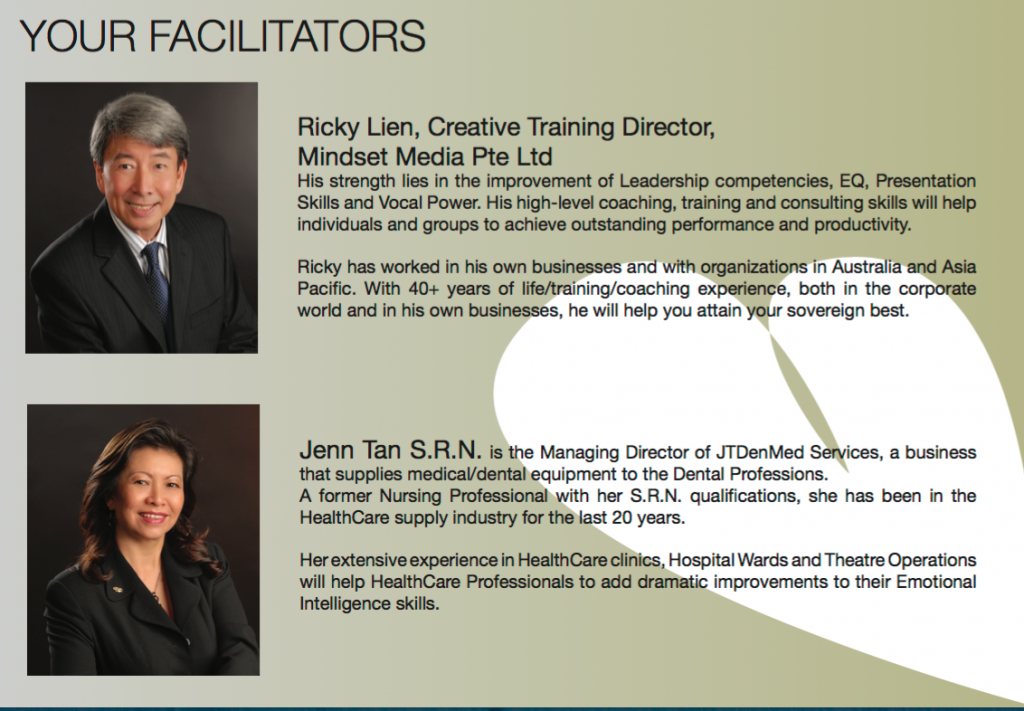The HeART of Communication is central in all interpersonal interactions. It is the centre of intuition, emotions and feelings.
HealthCare professionals work in a stressful environment. Departments have to run smoothly, staff need to be on time, patients and close family of patients are demanding and unyielding in their efforts to communicate their needs and wants to healthcare staff.
Add on too many patients plus overworked staff, people running late for their shifts, interdepartmental misunderstandings, garden variety personality and culture conflicts – these add up to a lot of potential stress and conflict.
That’s not good for patients and HealthCare professionals as patients demand more attention and perhaps even bring on legal suits to settle egos, pride and mistakes.
In this 1-day interactive, experiential training program, we teach strategies and tactics to reduce stress, get people to be heard, uplift productivity, and create a decidedly more collaborative work environment for HealthCare Professionals.
OUTCOMES
At the end of the 1-day program, HealthCare Professionals will be able to:
- Respond appropriately to stress by using empathic communication
- Pause between action and re-action to reduce emotional reaction
- Listen deeply and authentically by asking open questions
- Work towards using positive language
- Determine what the other party needs and work towards meeting those needs
- Enhance the professional-patient relationship
- Instill a patient-centered care outcome
- Motivate patients and other colleagues through empowerment
- Work with others to build trust
- Discover your new Tone of Voice to communicate empathically to reflect a high-care attitude and reach your noble goals
IN A NUTSHELL
Studies show several varieties of Voice tone were rated that assessed warmth, hostility, dominance and anxiety from 10 second Voice clips. Because the medical encounter is often emotionally stressful, patients may be especially sensitive to the emotion communicated by subtle cues such as the tone of Voice.


